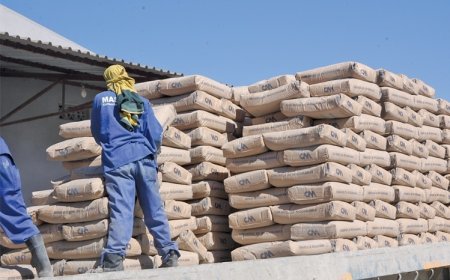Chapo’s Government Faces Major Hurdles as Poverty, Unemployment, and Hunger Weigh on Mozambique
The interplay of poverty, unemployment, hunger, and high youth illiteracy rates in Mozambique could severely undermine the effectiveness of President Daniel Chapo’s administration. Economist Constantino Marrengula of the Center for Learning and Civil Society Empowerment (CESC) has warned that poor governance over the past decade has exacerbated the country’s social and economic crisis, placing the new government in a precarious position.
Over the last ten years, Mozambique’s economy has underperformed, with GDP growth averaging below 4%, a stark contrast to the 9% levels recorded in previous administrations. The nation’s fiscal position has worsened, and Chapo’s government is now faced with a significant budget deficit, requiring heavy reliance on domestic borrowing and international aid. This dependence is likely to further strain public finances and exert downward pressure on the national currency.
Given these circumstances, Marrengula predicts that 2025 will be a particularly challenging year for the new government, with significant risks to national stability. The administration will remain constrained by high public debt and the urgent need to address both real and perceived security threats, he cautioned.
To prevent a social and economic collapse, the government must quickly develop innovative solutions to address the interconnected crises of poverty, unemployment, and youth illiteracy—particularly in northern provinces such as Nampula, Zambézia, Niassa, and Cabo Delgado, where poverty rates exceed 60% despite the region’s wealth of natural resources.
Marrengula estimates that nearly 18 million Mozambicans live below the poverty line, while youth illiteracy stands at nearly 50%, making it difficult for young people to enter the job market. This is a generation of young people who are largely unemployable in the country’s most productive sectors, he explained. The lack of economic opportunities has driven many young people to desperation, fueling the recent wave of protests against the government.
Young people in the past had more opportunities to participate in the economy than those today. Currently, many have no prospects for employment or economic integration, and when there are no opportunities, frustration leads to revolt against the state, the economist observed.
A recent study by the Rural Environment Observatory, titled Poverty Traps in Mozambique’s Rural Context, reveals that poverty levels have remained virtually unchanged since 2002. The research highlights that breaking the cycle of poverty requires effective and stable public policies, implemented in a coordinated and sustainable manner over the long term.
As the social crisis deepens, Chapo’s government faces the critical challenge of reversing this trend with little room for error. Failure to address Mozambique’s structural problems could lead to heightened political instability and increased public pressure on the state.





















